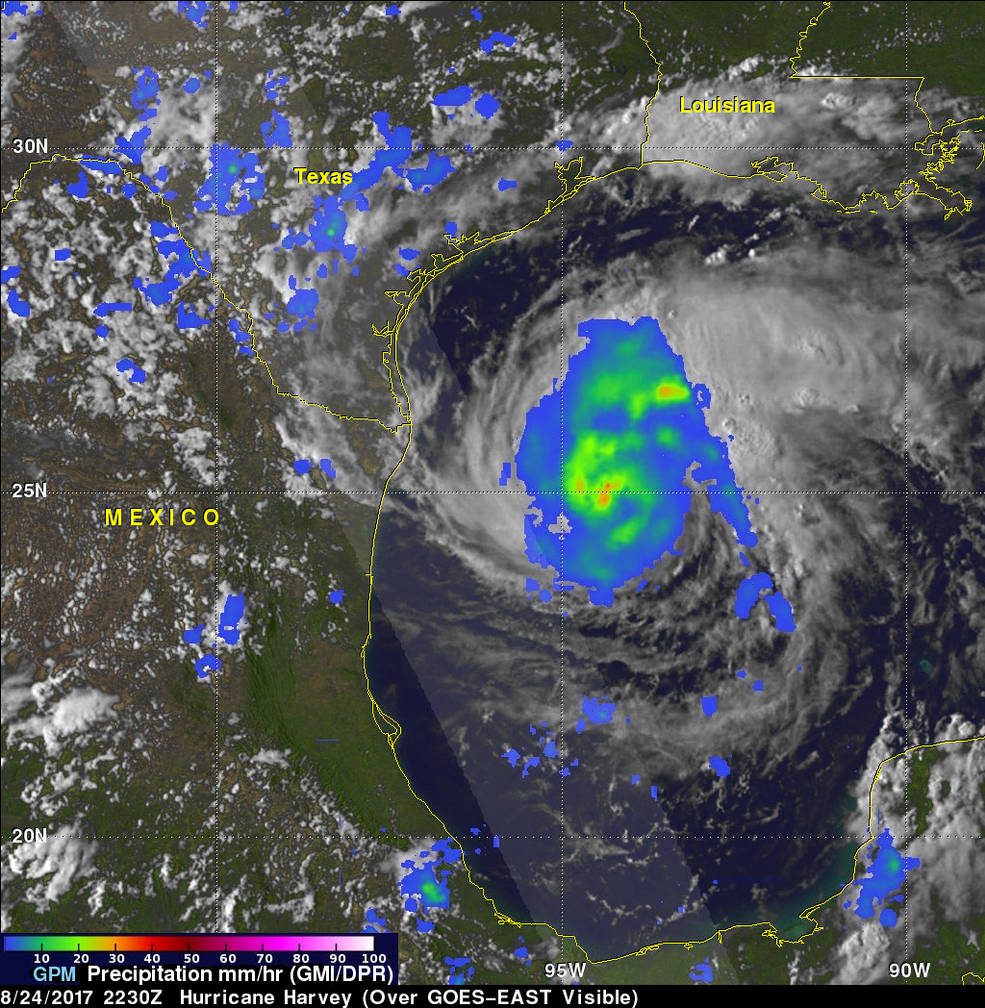A Hurricane Like an Occupying Army
By • August 28, 2017 0 542

We live our daily, contemporary lives in the internet world, where hardly anything is left to the imagination.
Something happens, we know about it — a truck burns on a highway, there’s a video on your local news, on your Twitter feed. The president has a thought pop into his head — it’s an instant tweet. A cat plays with an orangutan, how cute — it’s on You Tube.
We lull ourselves to bed with images, and think and dream we know everything.
Last week, amid the usual alarms and politics and protests and confrontations, we had an exultant encounter of a national kind with a total eclipse. We wore special glasses and felt a kind of pent-up joy of shared experience along the phenomenon’s nationwide route. It was useless to be indifferent to this (Spock might say it is illogical), and also useless to resist. For two and a half minutes or so — and the days-before hype of ecstatic weathermen — the hued darkness drowned out presidential controversy, drowned out change itself.
Somewhere out there, right about that time, these same weathermen and -women were warning about a possible hurricane named Harvey (not the invisible rabbit). Their voices did not quite contain that tremulous excitement and touch of alarm that indicated something big was heading toward the Gulf Coast of Texas, where small towns vied with Houston, and farther east, where the memory of Katrina in New Orleans hasn’t faded.
But today is Monday. Something happened.
“Catastrophic flooding in Houston,” “Texas rainfall measured in feet,” “Harvey blamed for 5 deaths, wide destruction.”
And Harvey, who made landfall and rushed into Texas as a Category 4 hurricane, then quickly and unnervingly dropped to a Category 1 tropical storm, remains, dropping a small ocean’s worth of rain all over the landscape.
Did someone say 50 inches of rain? That’s what’s expected in some places in flood-prone Houston, the state’s largest city and one of the top five in the country. FEMA sprang into action, national guards and elite emergency units packed up to rush to the aid of Texans. President Donald Trump, probably mindful of the hits taken by President George W. Bush over the Katrina disaster, which killed more than a thousand, was reported to be “very engaged.” Wearing a work cap, he twittered constantly like a sideline reporter.
Harvey — the rain falling, reporters staggering in the first winds, getting wet and stranded, the sight of families and lone strangers struggling through hip-deep water — was here to stay. It was like an occupation by an alien army who — during the night, unimaginable — had taken up residence, if not permanently, for a destructive and damaging time.
In some ways, help was already there, underneath the grind of officials: a mayor here, the governor there, a FEMA official there, law enforcement all the time. People who were still waiting out the storm pitched in to help one other, sometimes crawling out of the wreckage of their homes and what little they could rescue of their belongings to search for and assist their neighbors.
You saw the omnipresent photo albums, the tattered toys, the package of clothes and food, one man carrying another on his back, neck-high. You saw and heard the stories from elderly people in a video that went viral, sitting in wheelchairs with water rising into their laps.
You heard babies crying, dogs barking an: “We lost everything,” “Everything’s gone,” “Thank God we’re alive.”
Those are the sounds, along with things you can only imagine. Those weather maps — deep, startling, alarming reds like some horrible abstract painting, the swirling yellows, the arrows coming up the shore — leave an indelible impression, like some grotesque art show.
Videos, pictures, interviews, the storytelling of daily life struck by a hammer, with more to come, can leave a lasting impression. They haunt you. That’s when the imagination takes over. Even now, looking at the latest headlines, about 30,000 people headed for shelters, even now the scenes of soaring, roaring helicopters lifting people into the sky stay with you.
We are far from this, yet it’s like next door. You can imagine the gutters overflowing, the water — the sound of it — rushing among books and food and floors, the wreckage of paper and clothes and the broken dishes. Losing everything, a lifetime flushed away.
Water — the sound of water, and its rise of flotsam and fearful looks, and broken, whole buildings — the sight of being able to look from one end of an apartment complex to another gurgles in the imagery.
You can’t quite get away from it all, although there were the distractions of daily life and headlines, some of which began to reveal their essential triviality (like the money-soaked Mayweather-McGregor fight, the season finale of “Game of Thrones,” Taylor Swift’s new album, etc.).
Most comforting in neighborhoods that did not have to contend with Harvey was simplicity itself — young mothers with their babies, the car safely tucked away in a parking place, tonight’s dinner in or out, neighbors and the sound of voices walking by outside your door, carried by a softer wind than Harvey.
Mostly, the imagination lingers, thinking of a place called Rockford, of bricks and wood that looked like kindling, of a lone dog recovered, having gone for a stroll and returned with dog food, children wrapped in relieved love by parents, the sight of destruction, the material made immaterial, trailers drowning on a freeway, a sign telling you to “fill your gas tank.” So far, “only” five people had died, a far cry from Katrina, but not so far not to feel fear.
Harvey. Imagine. Harvey, still there.

